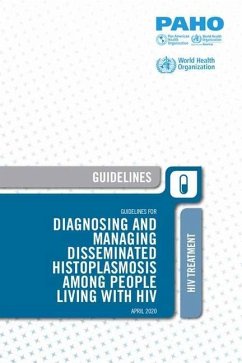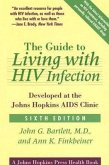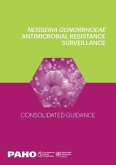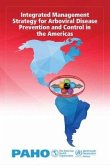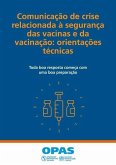Histoplasmosis is a disease caused by the fungus Histoplasma capsulatum. This disease is highly endemic in some regions of North America, Central America, and South America and is also reported in certain countries of Asia and Africa. It often affects people with impaired immunity, including people living with HIV, among whom the most frequent clinical presentation is disseminated histoplasmosis. The symptoms of disseminated histoplasmosis are non-specific and may be indistinguishable from those of other infectious diseases, especially disseminated tuberculosis (TB), thus complicating diagnosis and treatment. Histoplasmosis is one of the most frequent opportunistic infections caused by fungal pathogens among people living with HIV in the Americas and may be responsible for 5-15% of AIDS-related deaths every year in this Region. These guidelines aim to provide recommendations for the diagnosis, treatment, and management of disseminated histoplasmosis in persons living with HIV. Although the burden of disease is concentrated in the Americas, the recommendations presented within these guidelines are applicable globally. These guidelines were produced in accordance with the World Health Organization (WHO) handbook for guideline development. The Guideline Development Group elaborated the final recommendations based on a systematic review of scientific literature and critical evaluation of the evidence available using the Grading of Recommendations, Assessment, Development, and Evaluation (GRADE) approach. These guidelines are intended for health-care providers, HIV program managers, policy-makers, national treatment advisory boards, researchers, and other professionals involved in caring for people who either have or may be at risk of developing disseminated histoplasmosis.
Hinweis: Dieser Artikel kann nur an eine deutsche Lieferadresse ausgeliefert werden.
Hinweis: Dieser Artikel kann nur an eine deutsche Lieferadresse ausgeliefert werden.

